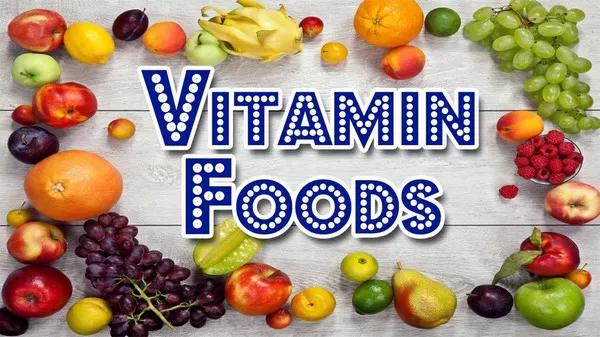Constipation can be an uncomfortable and frustrating condition, leading many individuals to seek relief through various means, including dietary supplements like vitamins. While vitamins alone may not be a magic cure for constipation, they can play a significant role in supporting digestive health and regular bowel movements. In this article, we will explore the vitamins that can aid in relieving constipation, the science behind their effectiveness, and the importance of a balanced diet for maintaining overall digestive wellness.
Understanding Constipation:
Constipation is a common digestive issue characterized by infrequent bowel movements, hard and dry stool, and difficulty passing stool. It can result from a variety of factors, including a lack of dietary fiber, inadequate fluid intake, sedentary lifestyle, medications, and certain medical conditions. Constipation can lead to discomfort, bloating, and even more severe complications if left unmanaged.
The Role of Vitamins in Digestive Health:
Vitamins are essential micronutrients that play a crucial role in various bodily functions, including digestion. While vitamins are not typically considered as direct remedies for constipation, certain vitamins can contribute to overall digestive health, making it easier to maintain regular bowel movements.
1. Vitamin C (Ascorbic Acid):
Vitamin C is well-known for its immune-boosting properties, but it also plays a role in promoting digestive health. It acts as an antioxidant and can help soften stool by drawing water into the intestines. This, in turn, can make it easier to pass stool. Citrus fruits like oranges, grapefruits, and lemons are excellent sources of vitamin C.
2. Vitamin B5 (Pantothenic Acid):
Vitamin B5 is essential for the proper functioning of the digestive system. It helps synthesize fatty acids and supports the metabolism of carbohydrates and proteins. While it may not directly alleviate constipation, ensuring an adequate intake of vitamin B5 can contribute to overall digestive well-being. Foods like whole grains, legumes, and avocados are good sources of vitamin B5.
3. Vitamin B7 (Biotin):
Biotin is another B-complex vitamin that can support digestive health. It plays a role in breaking down carbohydrates, fats, and proteins, which are essential for proper digestion and nutrient absorption. Biotin deficiency can lead to digestive disturbances, although it is relatively rare. Foods like eggs, nuts, and whole grains contain biotin.
4. Vitamin A:
Vitamin A is essential for maintaining the health of the mucous membranes lining the digestive tract. These mucous membranes play a crucial role in protecting the gastrointestinal (GI) tract and promoting proper absorption of nutrients. While vitamin A is not a direct remedy for constipation, it supports overall GI health. Sources of vitamin A include carrots, sweet potatoes, and spinach.
5. Vitamin D:
Vitamin D is known for its role in calcium absorption and bone health, but it may also have indirect effects on digestive health. Some studies suggest that vitamin D deficiency may be linked to gastrointestinal disorders, including constipation. However, more research is needed in this area. Exposure to sunlight and dietary sources like fatty fish and fortified dairy products can provide vitamin D.
The Importance of a Balanced Diet:
While vitamins can play a role in supporting digestive health, it’s important to emphasize that a balanced diet rich in fiber, fluids, and nutrients is the foundation of a healthy digestive system. Fiber, in particular, is crucial for preventing and alleviating constipation.
Fiber: Dietary fiber adds bulk to stool, making it easier to pass through the intestines. It also helps promote regular bowel movements. High-fiber foods include whole grains (e.g., oats, brown rice), legumes (e.g., beans, lentils), fruits (e.g., apples, pears), and vegetables (e.g., broccoli, carrots).
Fluids: Proper hydration is essential for softening stool and preventing constipation. Drinking an adequate amount of water (at least eight 8-ounce glasses per day) helps maintain the moisture content of stool, making it easier to pass.
Probiotics: Probiotics are beneficial bacteria that can help maintain a healthy balance of gut flora. They can aid in digestion and prevent gastrointestinal disturbances. Yogurt, kefir, and fermented foods like sauerkraut and kimchi are good sources of probiotics.
Prebiotics: Prebiotics are non-digestible fibers that serve as food for probiotics. They help probiotics thrive in the gut and promote a healthy balance of gut bacteria. Foods like garlic, onions, and asparagus contain prebiotics.
Omega-3 Fatty Acids: Omega-3 fatty acids, found in fatty fish (e.g., salmon, mackerel) and flaxseeds, have anti-inflammatory properties and may help reduce gastrointestinal inflammation, improving digestive health.
Managing Constipation with Vitamins:
While vitamins alone may not be a cure for constipation, they can contribute to overall digestive wellness. If you’re looking to manage constipation through vitamin supplementation, consider the following tips:
Consult a Healthcare Provider: Before taking vitamin supplements to address constipation, consult with a healthcare provider. They can assess your specific nutritional needs and offer guidance on appropriate dosages.
Consider a Multivitamin: If you suspect that your constipation may be related to a vitamin deficiency, a daily multivitamin that includes a range of essential nutrients may be a suitable option.
Balance Your Diet: Focus on a well-balanced diet rich in fiber, fluids, and nutrients to support overall digestive health. Dietary changes should always be the first step in managing constipation.
Stay Hydrated: Adequate hydration is essential for preventing and alleviating constipation. Ensure you drink enough water daily to keep stool soft and easy to pass.
Monitor Your Symptoms: Pay attention to how your body responds to dietary changes and vitamin supplementation. If constipation persists or worsens, consult with a healthcare provider for a comprehensive evaluation.
Conclusion:
Vitamins can contribute to overall digestive health and may indirectly support the management of constipation. However, it’s important to emphasize that a balanced diet, rich in fiber and nutrients, is the primary foundation for maintaining optimal digestive wellness. If constipation is a persistent or severe concern, it is advisable to consult with a healthcare provider for a thorough evaluation and personalized guidance on dietary and supplement recommendations. Remember that individual nutritional needs can vary, and a healthcare professional can help you make informed choices to support your digestive health effectively.


